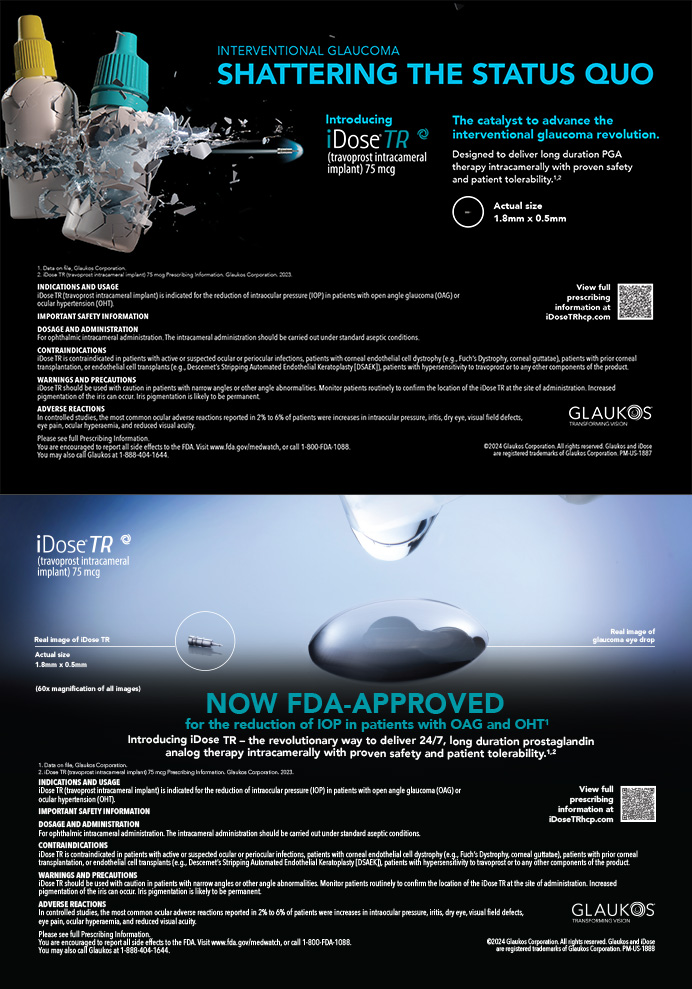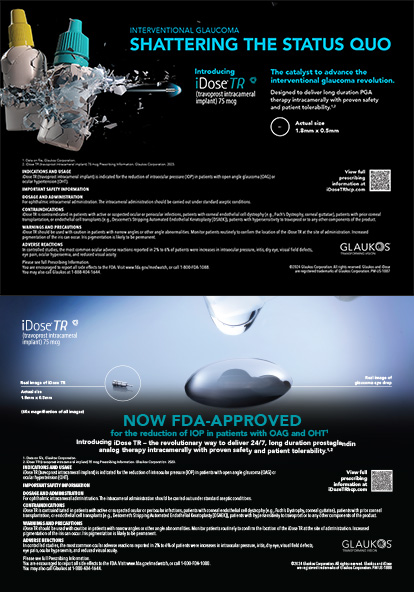As incoming President of ASCRS, what do you hope to accomplish during your term? The coming year will be very exciting for ASCRS. The ASCRS Foundation now has sufficient working capital to initiate and support three of its major goals: (1) groundbreaking research; (2) building consumer awareness of the benefits and risks of LASIK by redefining the risk in the context of other medical procedures and balancing it against the high level of patient satisfaction; and (3) international outreach programs—particularly cataract surgery in children—to assist those in third-world countries.
What will be the focus of the research conducted by ASCRS? During my presidential address, I am going to propose a research activity that will potentially involve the entire membership of the organization. The idea is to solve a problem that has haunted us for years—endophthalmitis following cataract surgery. We spend billions of dollars every year on topical antibiotics based the belief that they prevent endophthalmitis, but there has never been a study that has definitively shown their efficacy or inefficacy. Because endophthalmitis only occurs in close to 1 in 1,000 cases, we would need tens of thousands of cases to be performed in a uniform fashion in order to yield conclusive evidence. I am proposing an ASCRS Foundation-sponsored study that will involve as many of the organization's 8,000 members as will participate. If even half that number will perform 100 cases and randomize patients to an antibiotic versus placebo, we should achieve statistical significance.
In what ways will you fortify advocacy efforts? I see ophthalmology splintered into many groups. We all have our areas of subspecialty interest, and although I think that's important from an academic standpoint, it has unfortunately divided us politically. What I would like to see as President of one of the major organizations is for all of these groups to work together more effectively than we have in the past, especially regarding advocacy and other topics that are important to ophthalmology as a profession. We must unite our voices. If we're all willing to sacrifice some of our autonomy, we will be much better off collectively. Additionally, medicine as a whole needs to speak as a unified group; otherwise, our words will be misconstrued by legislators.
What are some of the clinical studies your facilities are conducting? I've always been a strong advocate of our practices' participation in clinical studies. We are involved in quite a few at the moment. We're studying a toric IOL; the intraocular miniaturized telescope as a potential treatment for AMD; the use of a low-dose tetracycline for treating acne rosacea blepharitis and meibomitis; bioavailability using a new topical antibiotic—a fourth generation fluoroquinalone; a new glaucoma formulation; and phakic IOLs, to name a few.
Please tell us about working with Project ORBIS. It is one of a number of terrific organizations that provide surgical and educational services in third-world countries. I've been involved with the Project since I started in practice 17 years ago, and it's always very fulfilling. Project ORBIS provides me with an opportunity to give back something that I've been so lucky to gain over the years—the instruction and demonstration of surgical procedures and diagnostic techniques by first-rate teachers. Today, we can conduct follow-up using the Internet, monitoring patient progress, and responding to additional questions from the surgeons. There's a wonderful educational exchange between the visiting and local faculties.


